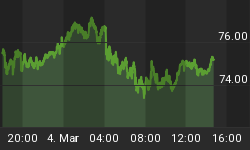Perhaps you have heard about warrants but have not taken the time to fully understand the potential which they can bring to your portfolio.
It's understandable for today there are so many different investment vehicles in which to invest. Most of our readers are interested in how to invest in the precious metals sector, so we have to consider, buying the gold and silver bullion, (if you can find it), mutual funds, ETF's (Exchange Traded Funds), mining shares, options, LEAPS, and warrants. All are great choices.
You find a lot written about most of the above choices, except for warrants, so allow me to give you a very brief introduction.
Definition: A warrant is a security giving the holder the right, but not the obligation, to purchase the underlying security at a specified price and expiring on a specified date in the future. Sounds very similar to a call option or LEAP doesn't it?
History: Warrants actually originated back in the 1920's according to some of my sources and in the 1950's thru the 1970's, there was a service by Sidney Fried, The RHM Warrant Survey. The service was only available in hard copy and was one of the few sources of information on warrants.
In "The Speculative Merits of Common Stock Warrants", by Sidney Fried and written in 1949, he states:
"...Common stock warrants turn in the most spectacular performance of any group of securities....the speculative potentialities of common stock warrants are enormous....
With potential profits and potential losses so great it is a source of wonder that so little understanding of the nature of common stock warrants exists not only among the investing 'public', who might be forgiven this sin, but even among the many 'professionals' of the business upon whom the 'public' depends for information and guidance."
Sidney Fried's observation in 1949 is the same as today, in that, most investors and analysts do not take the time to understand the potential leverage which warrants can bring to your portfolio.
Why would an investor consider warrants: Leverage, or at least potential leverage, is the prime reason an investor would be interested in warrants. The owner of the warrant receives none of the benefits of ownership of the common stock of a company. He cannot vote, and he does not receive any cash dividends. Why would an investor want to buy an option (warrant) to buy something instead of buying the thing itself?
The essence of the answer is that the anticipated gain on the warrant must be greater than the anticipated gain on the common stock. This more rapid growth in the value of the warrant relative to the common stock is called leverage. In many cases, with warrants you can achieve a leverage of 2:1 or greater and maximize your investment gains. Today there are many warrants expiring in the year 2011, 2012 and 2013 giving investors many years and thus the time necessary for the bull market to resume in the mining sector and for companies to execute their business plans.
Warrants are merely one investment vehicle, albeit, an important piece that can greatly increase your overall investment gains in the years ahead. Even for the most aggressive investor, we would suggest a 10% to 20% maximum allocation for warrants.
If you would like to know more about warrants, we encourage you to visit our website, www.preciousmetalswarrants.com for an in-depth discussion of warrants, many examples, how to trade warrants and much more.















